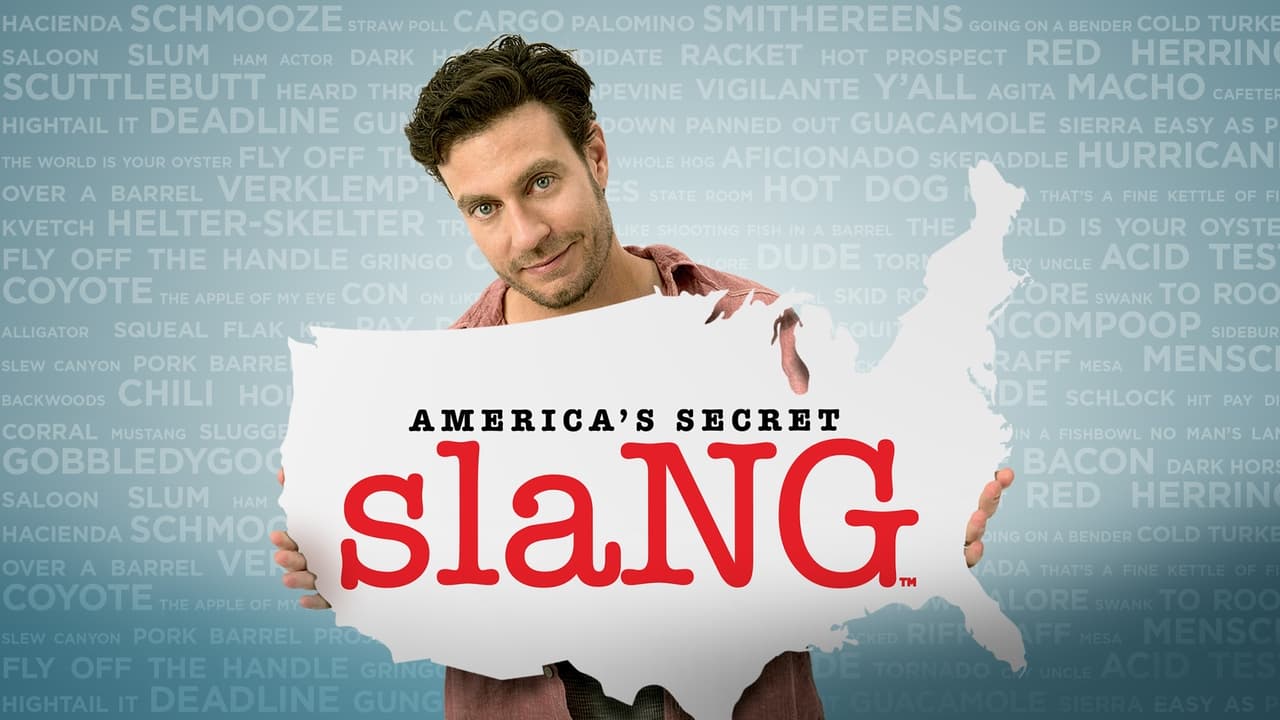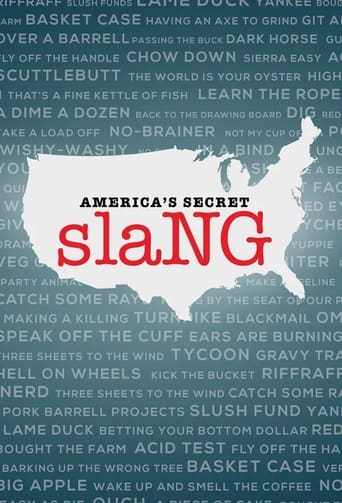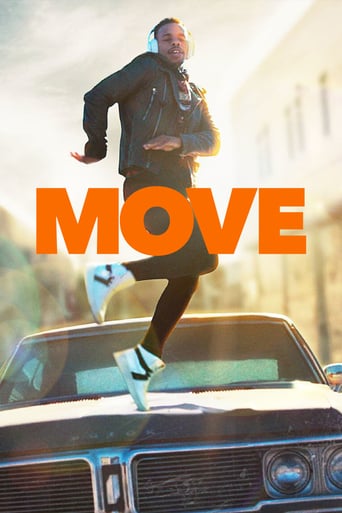America's Secret Slang Season 1

Host Zach Selwyn hits the streets to ask everyday people what they know about the origins and meaning of American slang, and then he reveals the true etymology and hidden history of common phrases and words that are unique to the United States. In each 30-minute episode, Selwyn focuses on a specific period in American history, revealing words that originated during that era or had significance for the geographic region.
Watch NowWith 30 Day Free Trial!
America's Secret Slang
2013


Host Zach Selwyn hits the streets to ask everyday people what they know about the origins and meaning of American slang, and then he reveals the true etymology and hidden history of common phrases and words that are unique to the United States. In each 30-minute episode, Selwyn focuses on a specific period in American history, revealing words that originated during that era or had significance for the geographic region.
Watch Trailer
America's Secret Slang Season 1 Full Episode Guide
Americans have always loved to eat and expressions relating to food--from New York's "big apple" to "wake up and smell the coffee" --pepper our everyday speech. But where did they all come from?
Ever wonder why American cowboys say "'git along little doggies" when they're talking about herding cattle? Or why a losing wrestler "cries uncle?" And why do we say "ouch" when we stub a toe?
Expressions from "riffraff" to "betting your bottom dollar", "passing the buck," "acid test" and even "heard it through the grapevine" all come from America's frontier days. But have you ever wondered why these phrases were first used and what they mean today?
The American South has given us words like "y'all" and "rednecks" as well as dozens of colorful phrases like "fly off the handle," "having an axe to grind," and "barking up the wrong tree." But what are the origins of these expressions and why has one group of people contributed so much to the American language?
Have you ever wondered why someone who can't get it together is called a "basket case"? Or where the term "Yankee" came from? And why do we say someone "bought the farm" when they die?
Politics is full of odd phrases like "pork barrel projects," "slush funds," and "lame ducks" -- all of which had practical origins and morphed to mean what they do today.
Free Trial Channels
Seasons



























